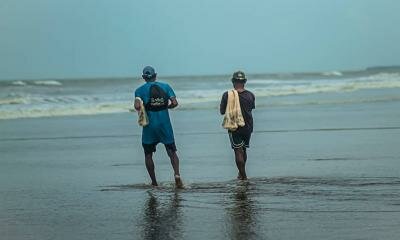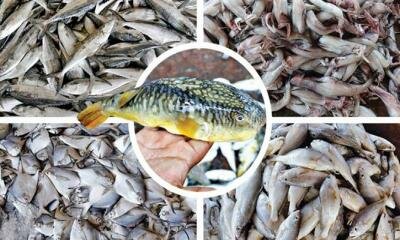Govt must protect marine aquatic ecosystem of Cox’s Bazar
Cox Gazette | Online Desk August 4, 2020, 01:04 PM

A HUGE volume of marine litter having been washed ashore on the Cox’s Bazar beach is worrying. This is so because while the marine litter, which mostly includes plastic wastes, that has been drifted ashore along the 120 kilometers of the sea beach over the past 12 days suggests that the marine aquatic eco-system there is at stake, the authorities are yet to identify the source of the litter. Unless the authorities can identify the source of the litter soon and take appropriate measures to attend to the situation, the event that has happened in about a fortnight could happen again. More than 100 tonnes of wastes that include plastic bottles, plastic ropes, packets, fishing nets and buoys have littered the beach from the Nazirtek point to the Himchari point. Green campaigners are reported to have cleaned up the shore while the local administration has set out an investigation to find out the source of the litter. A ranking environment official, also a member on the investigation committee, however, suspects that the source could be both of local and foreign origins.
At least 20 Olive Ridley turtles, a species already considered vulnerable, were found dead on the beach on July 11 and more than 500 of them, trapped in plastic wastes washed ashore, were rescued. Green activists who cleaned up the beach are reported to have found rare types of fossils in the litter and they describe the happening as a risk for the marine ecology, calling out the government on carrying out serious research on the environmental issue. The environment department in April 1999 declared the Teknaf Peninsula, which is the Cox’s Bazar sea beach, an ecologically critical area keeping to the provisions laid out in the Environment Conservation Act 1995. But the authorities concerned are reported not to have done enough to ensure the preservation of the ecosystem of the area. The beach, being a popular tourist destination, has experienced an increased level of degradation in environment and biodiversity in recent years. The absence of an effective waste management system and a general lack of awareness among people are said to have largely contributed to the problem at hand.
The government and other agencies concerned must, in such a situation, scale up their efforts to identify the source of the marine wastes at the earliest and take measures to stop the degradation of the marine environment. The local administration must also ensure an early clean-up of all wastes if they still litter. And all authorities must create public awareness of the use of materials that endanger the marine environment and work out effective and sustainable plans to conserve the biodiversity of the beach.
More News from Cox`s Bazar
-

Internet access will no longer be blocked in Ukraine says Elon Musk
-

No possibility of US sanctions expansion: Shahriar
-

UNHCR and IOM Condemn Deadly Attack on Displacement Site in DR Congo
-

Teleworking during COVID: Risks, benefits and steps to a ‘new normal’
-

Army officer among 4 dead in Bandarban gunfight
-

Health tech startup Best Aid raises investment from YY ventures.
-

DiCaprio praises Bangladesh on new marine protected area around St Martin`s
-

Guterres calls for end to conflict in Ethiopia after deadly attacks
-

Rohingya refugee camps hit by second fire in 10 days ,Leaving thousands homeless
-

BNCA begins a shadow investigation into elephant killing in Cox’s Bazar
-

One more elephant found dead in Cox`s Bazar, death toll 7 in 11 days
-

Shahriar Nisan joins BDMORNING as Acting Editor
-

Two more Rohingya men arrested over Mohib Ullah killing
-

One arrested over Rohingya leader Muhib Ullah killing.
-

Hundred Plus UN Job Openings in a glance
-

Youth empowerment for tourism’s future ,The eight winning solutions
-

UN Refugee agency condemns killing of Rohingya refugee leader
-

Thousands of `Rohingya Refugees` pay their last respects to Mohib Ullah
-

Rohingya Leader Mohibullah Killed in Cox`s Bazar camp
-

Internet connection cuts off in more than ` 25 `townships in northwestern Myanmar







Write Your Opinion :